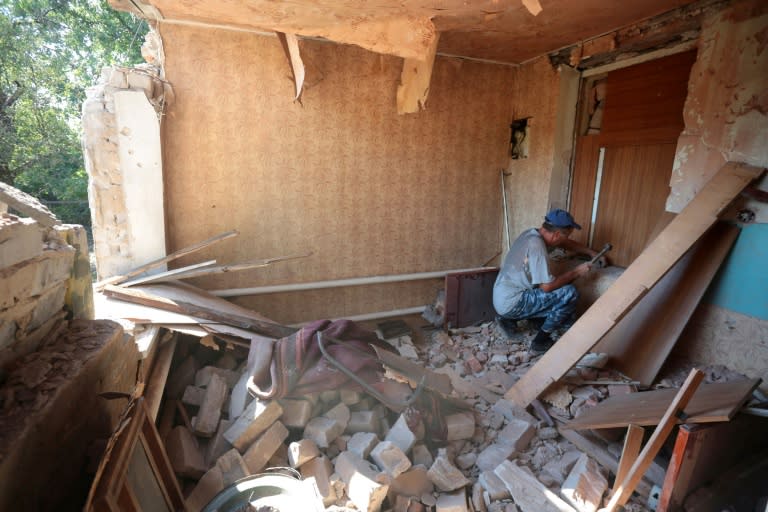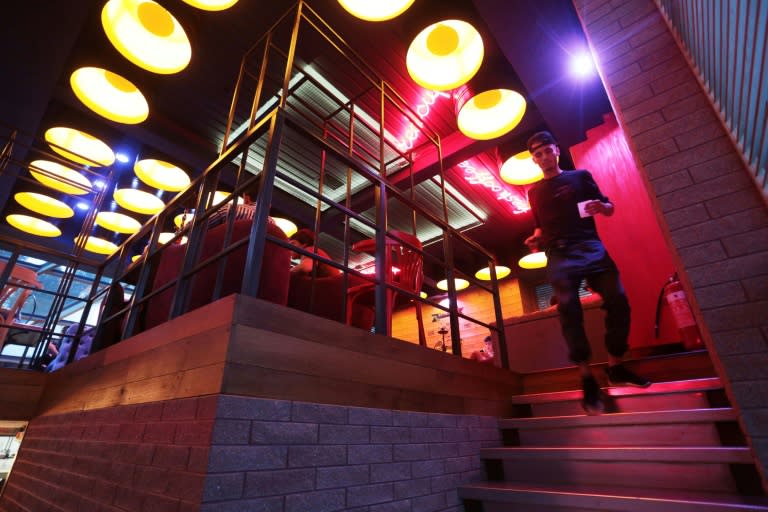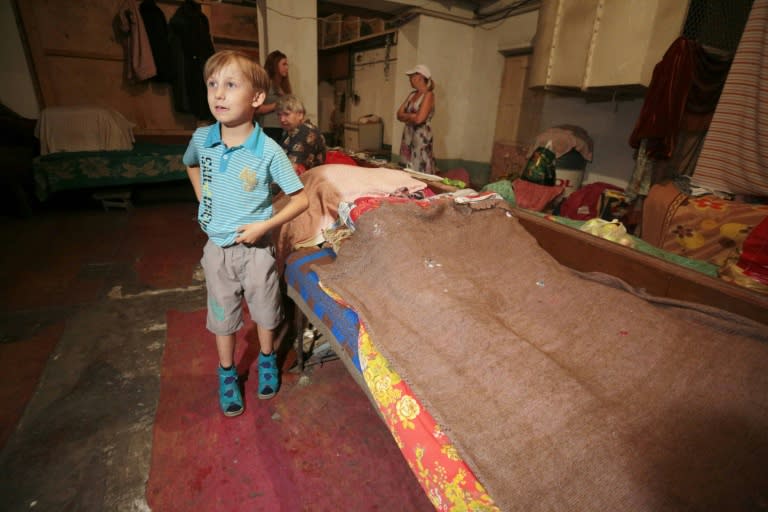Luxury thrives amid misery in Ukraine's war-torn east
Fancy restaurants and trendy boutiques stand just blocks away from stuffy bomb shelters where survivors hunker down in eastern Ukraine's pro-Russian rebel capital city of Donetsk. Some parts of the heart of the former Soviet republic's coal mining country make it hard to believe that a 29-month war has been raging around them at the cost of more than 9,600 lives and an even deeper rift in ties between Moscow and the West. A man who agreed to identify himself only as Yevgeny opened a barbershop that combines a beauty salon with a high-end pub with expensive wines and spirits just 15 kilometres (nine miles) from where the shells fall. The biggest challenge for the 36-year-old is not mortar fire but the logistics of delivering cosmetic products to his clients and alcohol to the war zone. "In spite of the fighting in Donetsk, women are doing expensive procedures, lip corrections, which cost $250 to $300 (220-265 euros)," he says. "The demand for luxury goods remains stable. Women here will save more on other things, but not on their looks," explains Yevgeny, whose store has been open for a year. His colleague Yevgenya Lazutkina is proud that insurgents of the self-proclaimed Donetsk People's Republic also frequent the shop. "We opened and developed during the war. Our main clients are fighters and those who are directly ruling our republic," the 27-year-old says. - Clubs and curfews - The conflict -- one of Europe's bloodiest since the Balkans wars of the 1990s -- exploded in April 2014, two months after the ouster of Ukraine's Kremlin-backed leaders and just weeks after Russia's annexation of the militarily strategic peninsula of Crimea. Kiev and the West accused Russia of supporting the rebels and deploying troops across the border in retaliation for its western neighbour's desire to become a member of the European Union and even NATO. Moscow bluntly denies either plotting or supporting the war in order to keep Ukraine -- once a peaceful geopolitical land bridge between the West and Russia -- off balance and dependent on its whims. The fighting in Donetsk has been limited to its outskirts since the sides signed a February 2015 peace agreement that failed to end the violence but managed to limit its scope and scale. Despite the conflict there are still clearly people with money in what was the industrial centre of Ukraine. They are a mixture of the new rebel elite: small or medium business owners who have managed to keep going and others who have holdings in Ukrainian-held territory but still return to their war-ravaged home base. Fancy restaurants on the central streets of the city that was once home to nearly a million people are packed and even hear complaints about the early closing hours. Curfews are in place as a safety precaution because the heaviest fighting happens at night and loose rockets have been known to hit the heart of Donetsk from surrounding battle zones. "Due to the curfew, all the nightclubs in the city close early and now I have to go home at 10:00 pm," 28-year-old Yulia complains as she waits in a restaurant to receive her order of wine and Japanese food. But it only takes a stroll from these trendy bar in the city centre to find residents who are fighting for their lives. - Tale of two cities - Yelena is a resident of the western Petrovsky district that is often the target of unidentified mortar and rocket attacks from nearby positions held both by government forces and the insurgents. She just spent her third summer in a dank bomb shelter with Sasha -- her rambunctious but slender 10-year-old son. Yelena says Donetsk is the definition of a tale of two cities in which the gulf between the haves and the have-nots is deep and stark. "People who live in the centre do not understand us," says Yelena. "They forget there are still areas of the city where the war goes on." The 37-year-old single mother says the indifference of other residents shocks her even more that the shortage of drinking water and lack of standard comfort. Yelena works in the city centre and often asks for permission to leave early because buses stop running as the dangers of dusk approach. But the bosses mostly refuse and she has to make the daily five-kilometre trek on foot. "They really do not understand that there is a war on where I live," she says. A female fighter who uses the nom de guerre Tokha confirmed that the lives of locals on the edges of Donetsk is filled with despair. "People here are exhausted. In the centre, the war does not feel like it does in the suburbs," Tokha says. "People there sleep quietly, they have a home and a bed. Those who do not come here only know about the war by watching TV."





